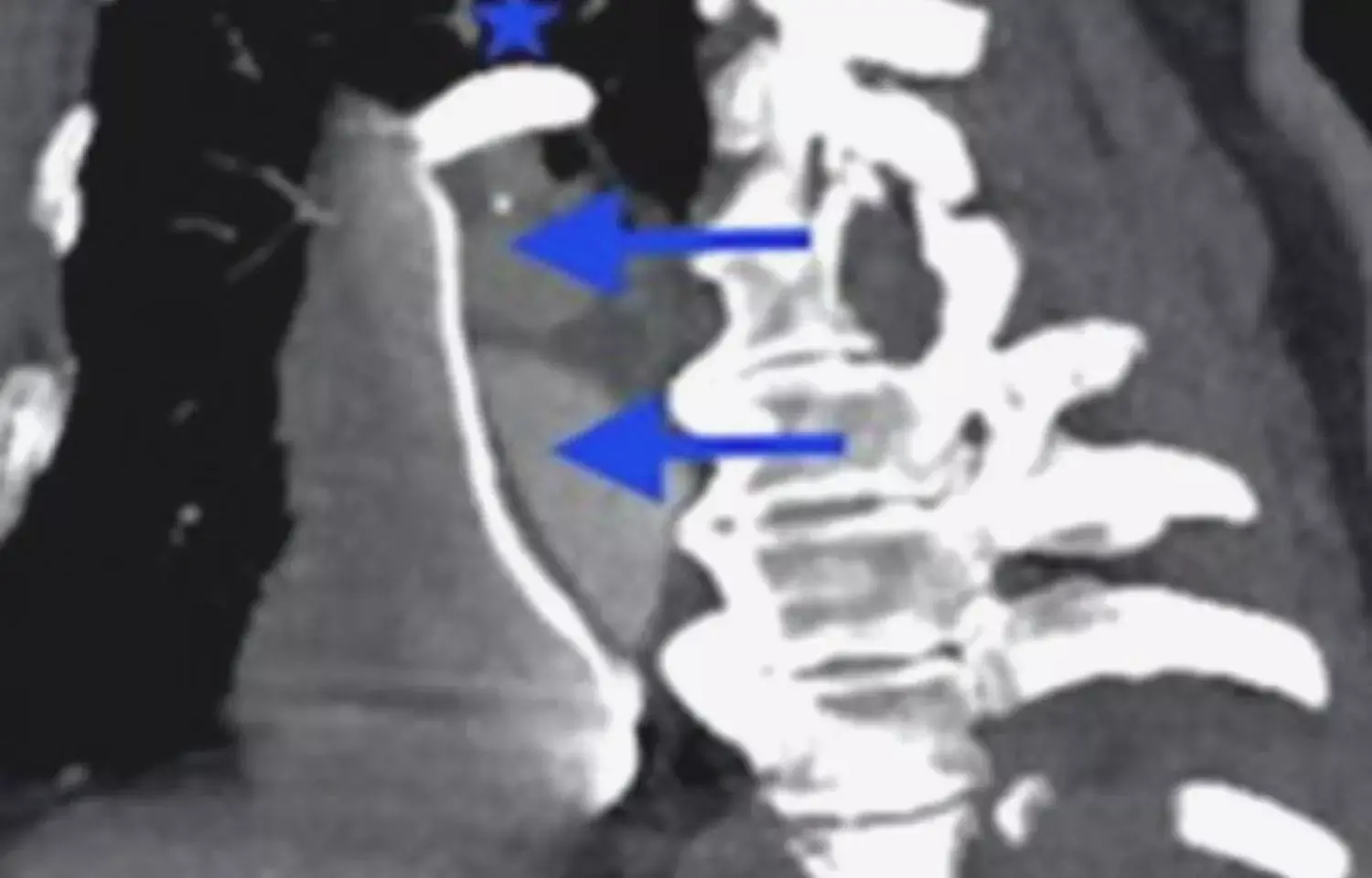- Home
- Medical news & Guidelines
- Anesthesiology
- Cardiology and CTVS
- Critical Care
- Dentistry
- Dermatology
- Diabetes and Endocrinology
- ENT
- Gastroenterology
- Medicine
- Nephrology
- Neurology
- Obstretics-Gynaecology
- Oncology
- Ophthalmology
- Orthopaedics
- Pediatrics-Neonatology
- Psychiatry
- Pulmonology
- Radiology
- Surgery
- Urology
- Laboratory Medicine
- Diet
- Nursing
- Paramedical
- Physiotherapy
- Health news
- Fact Check
- Bone Health Fact Check
- Brain Health Fact Check
- Cancer Related Fact Check
- Child Care Fact Check
- Dental and oral health fact check
- Diabetes and metabolic health fact check
- Diet and Nutrition Fact Check
- Eye and ENT Care Fact Check
- Fitness fact check
- Gut health fact check
- Heart health fact check
- Kidney health fact check
- Medical education fact check
- Men's health fact check
- Respiratory fact check
- Skin and hair care fact check
- Vaccine and Immunization fact check
- Women's health fact check
- AYUSH
- State News
- Andaman and Nicobar Islands
- Andhra Pradesh
- Arunachal Pradesh
- Assam
- Bihar
- Chandigarh
- Chattisgarh
- Dadra and Nagar Haveli
- Daman and Diu
- Delhi
- Goa
- Gujarat
- Haryana
- Himachal Pradesh
- Jammu & Kashmir
- Jharkhand
- Karnataka
- Kerala
- Ladakh
- Lakshadweep
- Madhya Pradesh
- Maharashtra
- Manipur
- Meghalaya
- Mizoram
- Nagaland
- Odisha
- Puducherry
- Punjab
- Rajasthan
- Sikkim
- Tamil Nadu
- Telangana
- Tripura
- Uttar Pradesh
- Uttrakhand
- West Bengal
- Medical Education
- Industry
Contrast agent pooling on CT- an indicator for imminent cardiac arrest: Study

Taiwan: Contrast agent pooling on CT-known as the CAP sign-can be considered as an alarm for imminent cardiac arrest and poor prognosis, says a recent study in the journal BMC Emergency Medicine. In simpler words, patients with positive CAP sign are more likely to encounter imminent cardiac arrest; in contrast, less likely to survive.
Some case reports have reported the sign of contrast agent pooling (C.A.P.) in the dependent part of the venous system, which happened in the patients prior to sudden cardiac arrest. Until now, there is not enough solid evidence to address the importance of the sign. Shyh-Shyong Sim, Department of Emergency Medicine, Far Eastern Memorial Hospital, New Taipei City, Taiwan, and colleagues, therefore, aimed to assess the accuracy of the C.A.P. sign in predicting imminent cardiac arrest and the association of the C.A.P. sign with patient's survival in a retrospective cohort study.
The study included all patients who visited the emergency department who received a contrast computed tomography (CT) scan and then experienced cardiac arrest at the emergency department (from January 1, 2016, to December 31, 2018). The researchers evaluated the occurrence of the C.A.P. sign on the chest or abdominal CT scan, those with ECMO were excluded. With a positive CAP sign, whether in-hospital cardiac arrest happens within an hour was the primary outcome, the CAP sign was calculated. The secondary outcome is survival to discharge.
The findings of the study were as follows:
· In the study, 128 patients were included. 8.6% (N = 11) patients had positive C.A.P. sign and 91.4% (N = 117) patients did not.
· The accuracy of C.A.P. sign in predicting cardiac arrest within 1 h was 85.94%.
· The C.A.P. sign had a positive association with IHCA within 1 h after the CT scan (adjusted odds ratio 7.35).
· The relative risk (RR) of survival to discharge was 0.90 with a positive C.A.P. sign.
"From our findings, the C.A.P. sign could be addressed as an imaging feature of circulatory failure, it could be used to predict imminent cardiac arrest," the authors wrote. "And, should be considered a warning sign for clinical physicians to provide in-time interventions for critically ill patients."
Reference:
Lee, YH., Chen, J., Chen, PA. et al. Contrast Agent Pooling (C.A.P.) sign and imminent cardiac arrest: a retrospective study. BMC Emerg Med 22, 77 (2022). https://doi.org/10.1186/s12873-022-00634-4
Dr Kamal Kant Kohli-MBBS, DTCD- a chest specialist with more than 30 years of practice and a flair for writing clinical articles, Dr Kamal Kant Kohli joined Medical Dialogues as a Chief Editor of Medical News. Besides writing articles, as an editor, he proofreads and verifies all the medical content published on Medical Dialogues including those coming from journals, studies,medical conferences,guidelines etc. Email: drkohli@medicaldialogues.in. Contact no. 011-43720751


